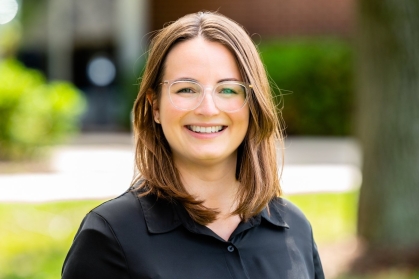Making Materials and Chemicals From Carbon Dioxide

Dr. Karin Calvinho
Chief Technology Officer
RenewCO2
Seminar Abstract: Electrochemical reduction of carbon dioxide, powered by renewable electricity, enables the sustainable production of chemicals, monomers, and fuels, potentially displacing fossil carbon sources and mitigating the effects of global warming. However, the activation of CO2 is a kinetic bottleneck for this process. Low energy efficiencies and poor product selectivity prevent the commercial use of this technology to synthesize products with more than one carbon. As such, we sought to develop viable catalysts for the CO2 reduction reaction (CO2RR) that 1) operate at high energy efficiency; 2) are capable of catalyzing C-C coupling for producing high-value chemicals; 3) are synthesized from earth-abundant materials, and 4) are robust and stable for extended lifetimes. Inspired by nature’s formate and carbon monoxide dehydrogenases, we investigated the CO2RR activity of seven different transition metal phosphides. Furthermore, we applied experimental and theoretical tools to unravel reaction mechanisms and extract design principles that can guide the development of next-generation catalytic materials.Ni2P emerged from our research as the most promising catalyst, operating at exceedingly low overpotential (∼10 mV), yielding no hydrogen by-product at 0V vs. RHE, and forming non-volatile C3 and C4 monomers. The discovery of the catalyst prompted us to investigate the technology’s potential for translation to a commercial process. Through customer interviews, we found wide interest in carbonnegative processes to offset industrial CO2 emissions. As a result, RenewCO2 was born as a spinout from Rutgers University. Today, the startup is developing a pilot-scale process to produce plastic precursors and fuels from CO2 with funding from the Department of Energy, the National Science Foundation, and Breakthrough Energy and venture capital. In this talk, we will cover RenewCO2’s recent advances in catalyst synthesis scale-up, stack scale-up and durability testing, as well as process design and economics.